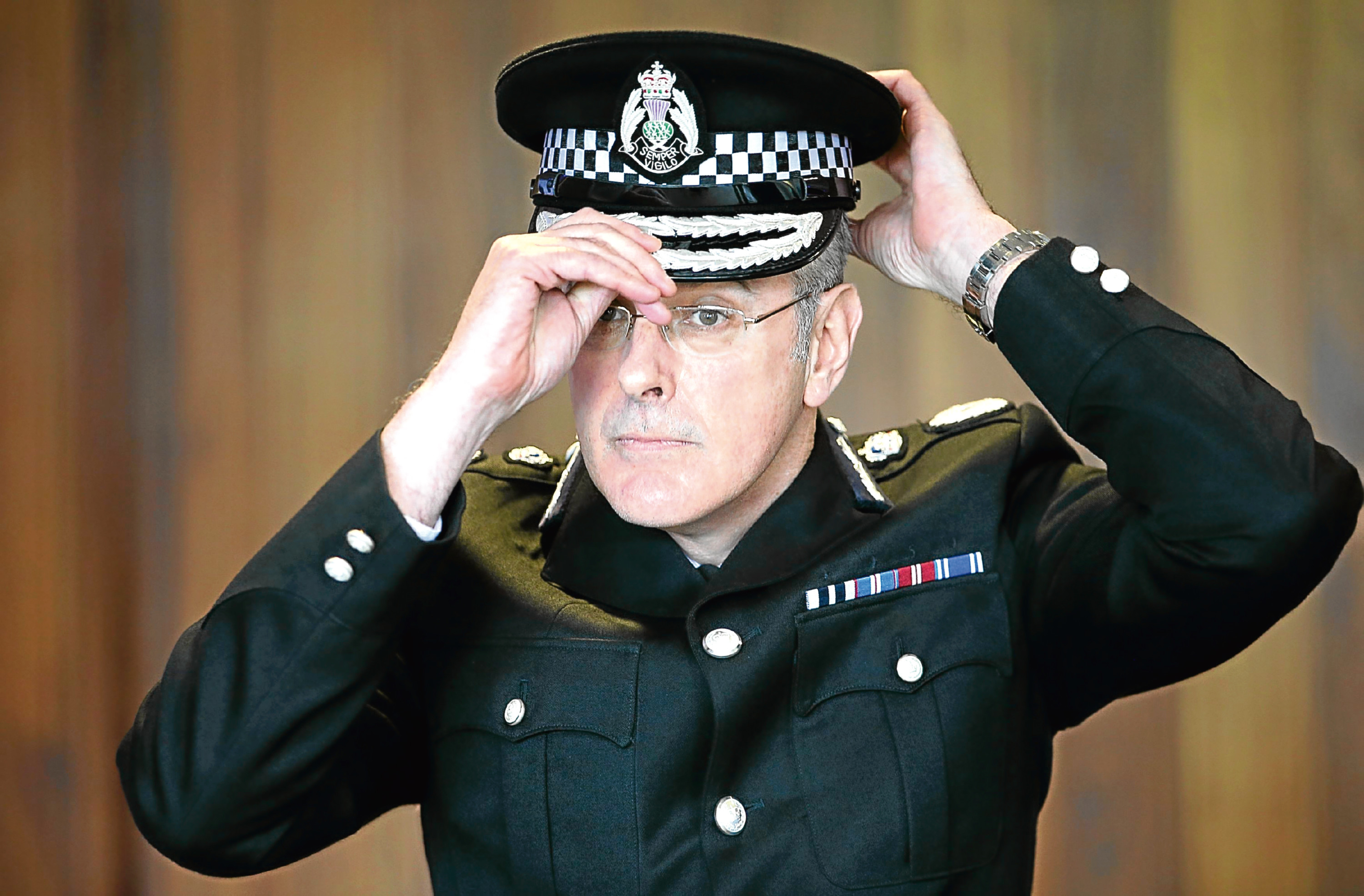When Lib Dem leader Willie Rennie suggested Scotland’s chaotic police force should look south of the border to draft in help, it sounded like a good idea.
However, the last policeman to be recruited from England to a top job in Scotland was one Phil Gormley, the chief constable put in to run the country’s relatively new centralised force less than two years ago.
As we have learned this week, his career now hangs in the balance after he was forced to step aside in the wake of gross misconduct allegations from colleagues.
If the claims, which Gormley denies, are proved, he will be dismissed.
Meanwhile, his deputy, Iain Livingstone, who had been planning to retire, will lead the force for the time being.
There is also no chairman of the quango supposed to be overseeing Police Scotland, the Scottish Police Authority (SPA), following the resignation of Andrew Flanagan in June. He announced his intention to leave (although he has not gone yet) amid concerns over transparency and governance.
And as if all that is not enough to alarm us, the chief executive of the SPA, John Foley, is to take early retirement.
He had faced calls to resign over a report that found he had “shortcomings”.
“Vacuum”
How did our force get into such a mess and how is it going to get out of it?
Rennie could have said “we told you so” as the Lib Dems were the only party to oppose the amalgamation of Scotland’s eight police authorities into one some four years ago.
Certainly, no one could argue with him now when he says “there is a vacuum of leadership in the whole organisation”.
But it did make sense to streamline the regional bodies, given that a population of five million could not justify the administrative overlapping and waste of resources of so many individual forces.
Part of the blame for the so far disastrous gestation of Police Scotland must go to Kenny MacAskill, the former justice minister who rushed through the changes without appropriate scrutiny.
There was not even an HQ for the new unit when it came into existence.
Nothing has gone right since. Gormley’s predecessor, Sir Stephen House, lasted two years in the job, leaving a trail of controversy over incidents that can only be described as shoddy policing.
One involved a car crash off the M9, which was reported to the police, who did not subsequently log the call.
Only after a further sighting of the accident and a second call three days later did police arrive.
The driver was dead and the passenger was suffering from injuries from which she later died.
Shortly after House quit in 2015, the first chairman of the SPA, Vic Emery, also left his role.
Right calibre
If the authority established specifically to guide the new Police Scotland could not attract the right calibre of people to run it, there was not much hope for the police force itself.
The present shambles shows that ministers at Holyrood are still no closer to getting a grip on their creation, although MacAskill has departed.
His successor, Michael Matheson, may be inexperienced but the government has to step in and sort out the chain of command in both Police Scotland and the SPA.
The top cadre of police officers have to be accountable not just to their communities but to the parliament.
The Scottish Tories have called for the shelving of a proposed merger of the British Transport Police into Police Scotland, against this backdrop of mayhem.
The government needs to forget politics and take note. The last thing needed now is any further structural shake-up.
And they should also heed Rennie’s advice to headhunt from other UK forces, despite the poor casting of Gormley, who arrived in Scotland from the newly-formed, London- based National Crime Agency, also mired in scandal over its failures, and labelled incompetent by an Old Bailey judge.
Disarray
As Scotland celebrates 20 years of devolution this week, one of its biggest devolved tasks – policing – is in disarray.
There is a reported financial deficit of around £200,000 (roughly the same amount, incidentally, as the chief constable’s pay), and low morale among frontline ranks, not to mention plummeting public confidence as the force self destructs.
A report into Police Scotland, published in the summer, said it had “met its annual objectives and continued to deliver a service to a high quality and consistency”.
Such complacency in the circumstances would be astonishing were it not for the fact that the SPA wrote the report.
But a whitewash will not salvage the reputation of Scottish policing, as ministers must now realise.
The government can’t afford to make another mistake. One more dud appointment and the whole concept of a unified police force will have to go back to the drawing board.
